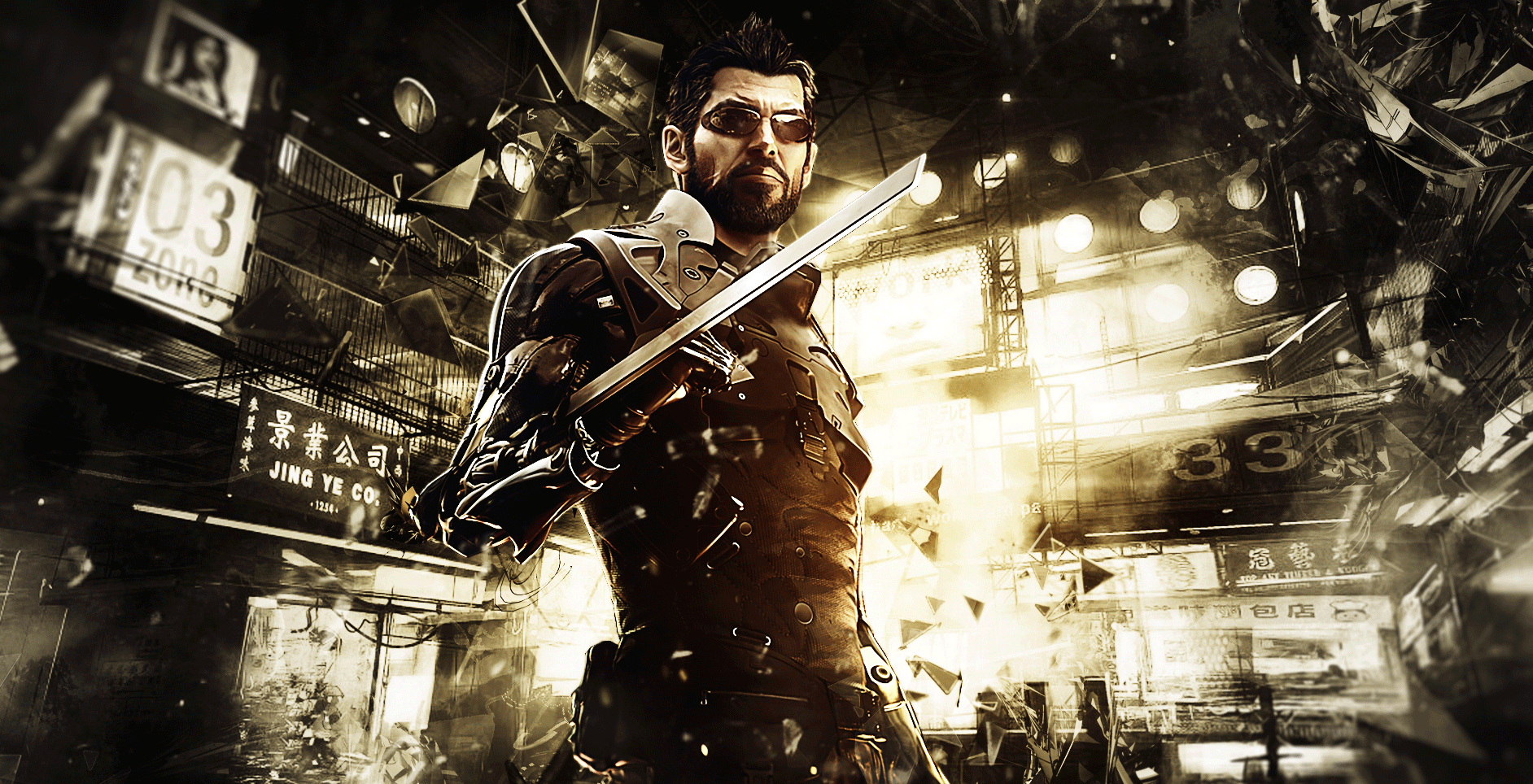Press Start may receive a commission when you buy from links on our site at no extra cost to you.
While the original Deus Ex game is forever acclaimed as one of the greatest games ever made, it’s the more recent sequels that paint a more realistic and grim tone that speaks volumes to how interesting the future is for us, and how terrifying it can be. It’s a tone that may only be too realistic.
Adam Jensen is a man torn of his humanity, forced into robotic augmentations that, and I quote, he “never asked for”, after a battle that nearly kills him. This psychological battle of humanity v robots is what drives the majority of the themes in Deus Ex: Human Revolution.
Abdulaziz Sachedina hypothesizes that the practical obligations established by humanity to preserve their natural identitites would be fundamentally disrupted as a result of human augmentation It’s an interesting hypothesis that lies in the heart of one of Deus Ex’s themes: what it means to be a human. Adam Jensen is constantly faced with a battle of how it feels to lose your humanity. The writing nearly reflects that (unintentionally or intentionally is left in the air): no matter what, Jensen’s personality will not change regardless of what you do in the game. Even the endings of Human Revolution do not ultimately affect the sequel, with Mankind Divided choosing an amalgamation of all the endings given to the player. This may seem to be more of a restriction of development than a thematic tie, but nevertheless, it ends up reflecting the themes that Deus Ex carries.
Adam Jensen is constantly faced with a battle of how it feels to lose your humanity. The writing nearly reflects that (unintentionally or intentionally is left in the air): no matter what, Jensen’s personality will not change regardless of what you do in the game. Even the endings of Human Revolution do not ultimately affect the sequel, with Mankind Divided choosing an amalgamation of all the endings given to the player. This may seem to be more of a restriction of development than a thematic tie, but nevertheless, it ends up reflecting the themes that Deus Ex carries.
Mankind Divided, the next chapter of the Deus Ex franchise, paints a very dark and violent world for augmented bodies, in a future known as the mechanical apartheid. After the catastrophic event that turned augmented beings into homicidal maniacs for a brief period of time, the mechanical beings are no longer trusted, ostracized and stigmatized to the point of segregation, in a futuristically twisted view of the racial tensions in America. But to look into Mankind Divided’s setting, one must first look at the not so unrealistic setting that Human Revolution had painted.
Is the future Deus Ex paints so outrageous? Sure, inbuilt parachute systems, cloaking systems and perhaps most useful of all, inbuilt retractable sunglasses (no, really) are a little outrageous. But it’s 2016, and the world is full of augmentations already. Think of yourself or your friends. Think of everyone you know, whether they be someone famous or professional. We may not be able to cure all diseases yet, but the real life implementation of organ replacements, limb replacements, pacemakers, insulin pumps are so commonplace that to those that carry them, it’s nothing but second nature at this point. These are all existing and very real technologies that certainly fall under human augmentation. Not to mention plastic surgery to enhance physical looks or fix what could be seen as physical deformities, prosthetics and IVF treatment. Anything that enhances or changes the human body beyond its natural form is what’s considered an augmentation, augmentations that provide the basis of where Deus Ex takes us.
Think of yourself or your friends. Think of everyone you know, whether they be someone famous or professional. We may not be able to cure all diseases yet, but the real life implementation of organ replacements, limb replacements, pacemakers, insulin pumps are so commonplace that to those that carry them, it’s nothing but second nature at this point. These are all existing and very real technologies that certainly fall under human augmentation. Not to mention plastic surgery to enhance physical looks or fix what could be seen as physical deformities, prosthetics and IVF treatment. Anything that enhances or changes the human body beyond its natural form is what’s considered an augmentation, augmentations that provide the basis of where Deus Ex takes us.
This is why Human Revolution remains intriguing and relevant five years later, with an imminent sequel on the way. Because the issues the game (and series) raises are almost frighteningly realistic and tangible. When humanity eventually slides into a future where augmentations become more and more naturalistic, commonplace and part of the free world, it isn’t hard to imagine a world where companies that control these augmentations have shadier motives. Look at Microsoft’s draconian approach of forcing Windows 10 on users. Look at DRM. Look at all the way technology has controlled the implementation of technology without your total approval. While the catastrophic event orchestrated by the Illuminati that led to mass murder and global ramifications in Human Revolution seems far-fetched to real life, it’s entirely possible that the use of these augmentations will lead to a loss in humanity and a loss of control over the human body, as we approach a future that seems full of boundless opportunities.
 It’s an uncomfortable line to walk, using real life events to inspire and satire in fictional usage. A promotional piece of art that showcased a banner that read ‘augs lives matters’, a clear bastardization of the black lives matter movement, seems especially inflammatory for 2016, where racial tensions are at a high. Despite this, the reason they chose to use this was maybe because a future where augmented humans are ostracized and attacked could very well be real, especially after such a global catastrophe that Human Revolution showed. Deus Ex paints a future that may be only too real for the actual, physical world.
It’s an uncomfortable line to walk, using real life events to inspire and satire in fictional usage. A promotional piece of art that showcased a banner that read ‘augs lives matters’, a clear bastardization of the black lives matter movement, seems especially inflammatory for 2016, where racial tensions are at a high. Despite this, the reason they chose to use this was maybe because a future where augmented humans are ostracized and attacked could very well be real, especially after such a global catastrophe that Human Revolution showed. Deus Ex paints a future that may be only too real for the actual, physical world.
It’s 2016, Mankind Divided is set a mere 13 years away and given the growth and speed of technology, the themes these games touch on are only too real for us.




